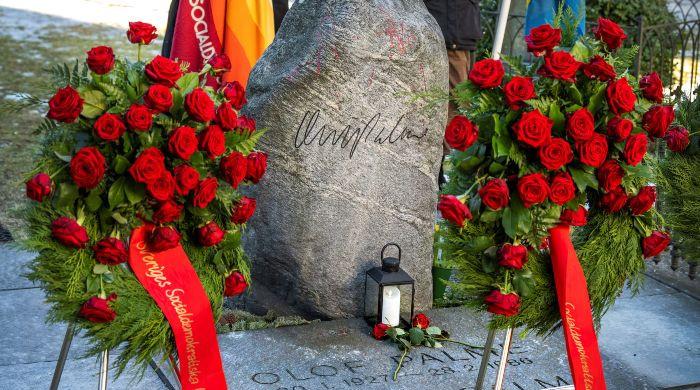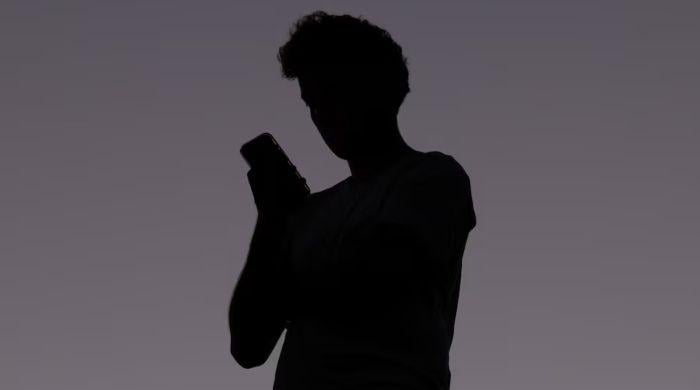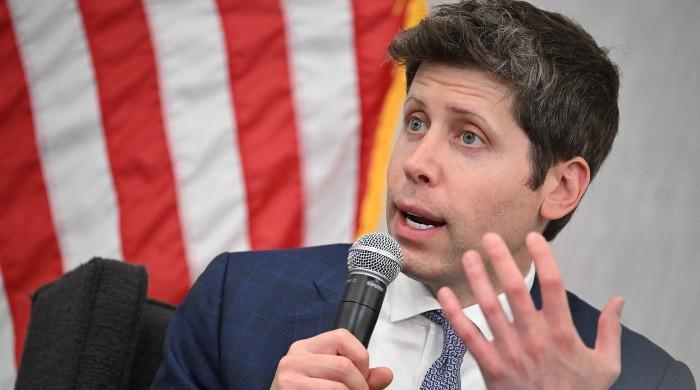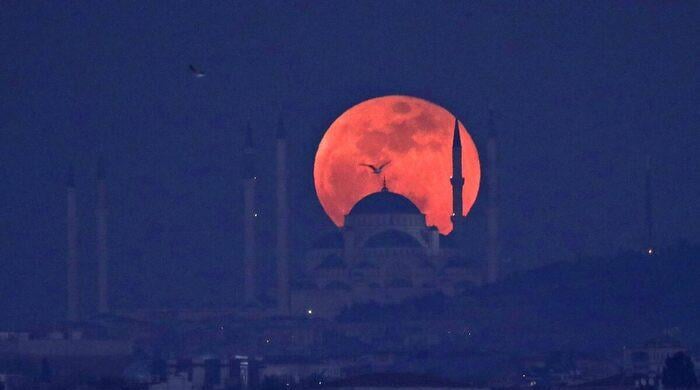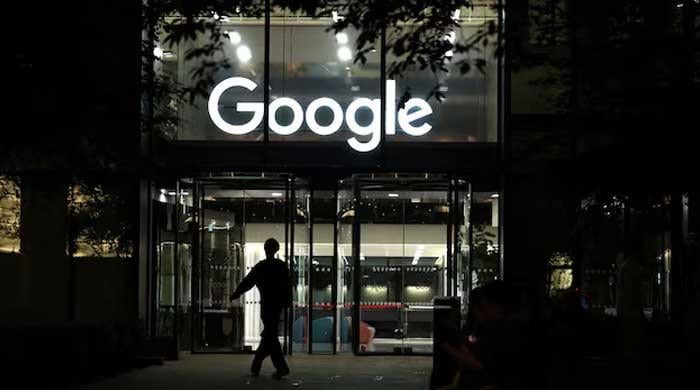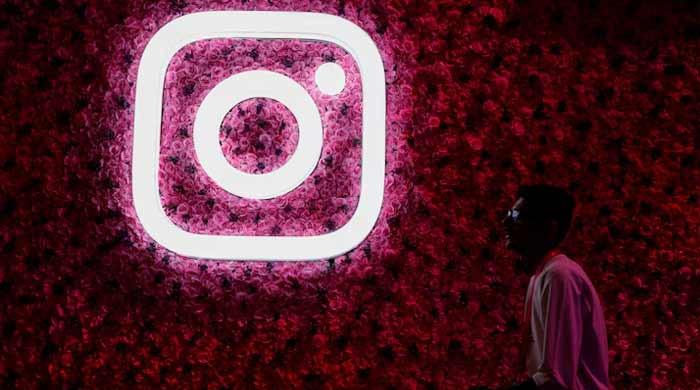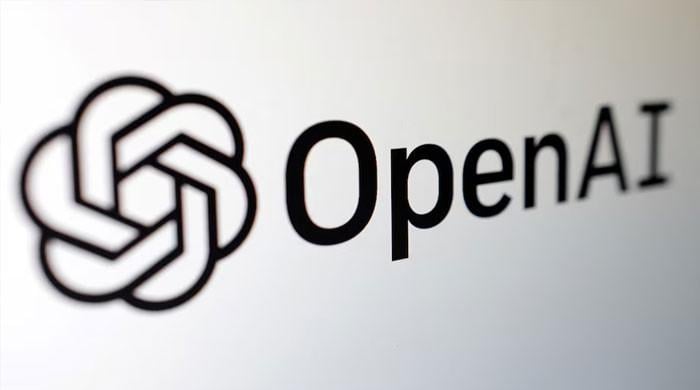Freedom on the Net 2016: Pakistan ranked among 10 worst countries
WASHINGTON: A recently released report on global ranking of Internet freedom has placed Pakistan on 56th position out of 65 countries with cyber liberty but the Islamic country scored better than...
November 18, 2016
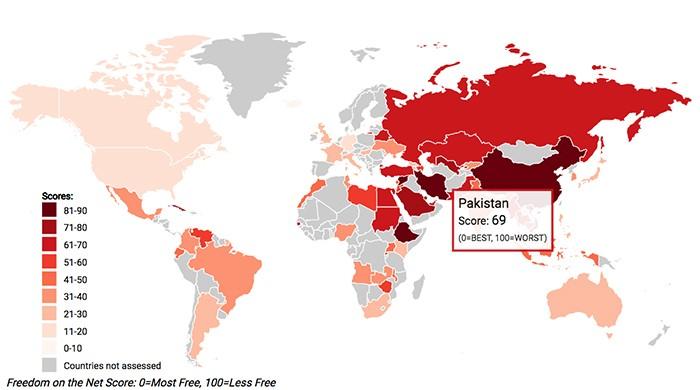
WASHINGTON: A recently released report on global ranking of Internet freedom has placed Pakistan on 56th position out of 65 countries with cyber liberty but the Islamic country scored better than India in terms of allowing political satire and liberty to comment on conflict.
The ranking was issued in the “Freedom On The Net 2016” report launched by the “Freedom House” at Google’ office here.
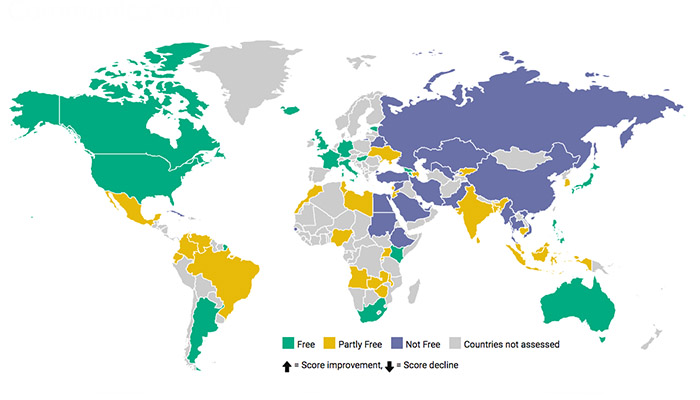
India which was ranked 41st in the index was grouped with countries which allow limited freedom to write about conflict, a fact that was noted when the world’s “largest democracy” shut down the Internet for days in its occupied Kashmir territory amid popular uprising.
Report said Both India and Pakistan would allow limited or no freedom on five topics but political satire and conflict were not among the censored subjects in Pakistan.
The report claimed that Internet is “partly free” in India. However, in so-called largest democracy Internet is usually censored when someone criticises the state authorities, makes comment on conflicts like Kashmir, makes satire of the politicians or other high profile personalities, does social commentary and says something which is considered blasphemous.
In Pakistan, the topics including criticism on state authority, blasphemy, social commentary, lesbian/gay issues and ethnic and religious minority face partial or complete censorship.
The report ranked Pakistan 56th in the index of 65 countries in terms of Internet freedom, with 34 million users. The countries which have poor score than Pakistan included Bahrain, Saudi Arabia, Vietnam, Cuba, Uzbekistan, Ethiopia, Iran, Syria and China. The report revealed that Internet freedom has declined for the sixth consecutive year, with more governments than ever before targeting social media and communication apps as a means of halting the rapid disseminating of information, particularly anti-government protests.
Freedom House is a non-profit, nonpartisan organization that supports democratic change, monitors freedom, and advocates for democracy and human rights. The US State department funded the research report, but the Freedom House clarified the report did not reflect the views and policies of the US government.
The 2016 report assessed 88 percent of world’s Internet users population and found that 35 percent was not free, primarily, in the developing countries. The report observed that 24 percent of Internet users population is free, while 29 percent is partly free.
Estonia was declared the best country with maximum Internet freedom, followed by Iceland, Canada, United States, Germany, Australia, Japan and the United Kingdom. Largely, the entire Europe was shown with maximum Internet freedom.
Speaking at the launch event US Senator Ron Wyden (Dem) said that US intelligence agencies were demanding sweeping powers to infringe the privacy of the Internet users. “A proposed legislation seeks absolute powers to the FBI to get access to browsing history of the (Internet) users. What could be more private than one’s browsing history,” he stated.
He vowed to block the legislation in the upcoming session of the US Congress. In the aftermath of November 8 elections the Republicans now controls both Houses of the US Congress which means the Democrats may not be able to block the bill. President-elect Donald Trump already favoured more Internet scrutiny and censorship in the name of national security.
Same fears were expressed by Sanga Kelly, director Freedom On The Net, that Trump administration would usurp the right of Internet freedom in the name of national security.
She warned that American-Muslims would also be targeted by the Trump administration.
“Popular social media sites like Facebook and Twitter have been subject to growing censorship for several years, but governments are now increasingly going after messaging apps like WhatsApp and Telegram,” she observed.
The Freedom House report found that two-thirds of all Internet users – 67 percent – live in countries where criticism of the government, military, or ruling family was subject to censorship.
Governments in 24 countries impeded access to social media and communication tools, up from 15 in the previous year, the study found. Authoritarian countries most frequently blocked access to these tools during political protests.
Separately, voice and video calling apps like Skype came under pressure in a number of countries, where governments sought to protect the revenue of national telecommunications firms as users turned to online apps for cheap, or free, calling and messaging.
Internet or mobile phone networks were temporarily shut down in 15 countries, as authorities became more likely to employ this disproportionate tactic in reaction to local events.
The report blamed China being the world’s worst abuser of Internet freedom, followed by Syria and Iran. An amendment to Chinese criminal law added seven-year prison terms for spreading rumours on social media. Some users in China belonging to minority religious groups were imprisoned for watching religious videos on mobile phones.
The report noted that social media users faced unprecedented penalties. Authorities in 38 countries made arrests based on social media posts over the past year, an increase of more than 50 percent since 2013.
It quoted that, in Egypt, a photo depicting President Abdel Fattah al-Sisi with Mickey Mouse ears resulted in a three-year prison term for the 22-year-old student who posted it on Facebook.
The report said 14 countries approved new national security laws or policies that could significantly limit Internet freedom.




